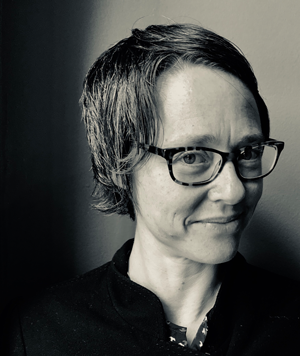 The 2019 Alan Merriam prize is awarded to Kiri Miller for Playable Bodies: Dance Games and Intimate Media, published in 2017 by Oxford University Press. The Merriam Prize is awarded by the Society for Ethnomusicology to recognize “the most distinguished English-language monograph in the field of ethnomusicology, published as the author’s second or a later monograph.” Books published in the previous two years are considered for the award.
The 2019 Alan Merriam prize is awarded to Kiri Miller for Playable Bodies: Dance Games and Intimate Media, published in 2017 by Oxford University Press. The Merriam Prize is awarded by the Society for Ethnomusicology to recognize “the most distinguished English-language monograph in the field of ethnomusicology, published as the author’s second or a later monograph.” Books published in the previous two years are considered for the award.
The opening words of Playable Bodies ask: “What can machines teach us about ourselves? If we reveal ourselves to them, what do they see in us that no one else can see?” The author then proceeds to address these increasingly salient questions through a fistful of themes: [1] “surveillance and control; [2] performativity and embodied difference; [3] kinesthetic listening; [4] the virtual transmission of embodied practice; and [5] choreographic labor.” The book is a dance with intimacy and virtuality, and thus with issues that for most if not all of us, both engage and confound our everyday lives as we commit to digital technologies our identities, thoughts, and movements.
One of the committee members noted that this year’s Merriam Prize winning book is a timely ethnography that grapples with complex issues of embodiment, technological mediation, and affect in a manner that many ethnomusicologists and others throughout the humanities will find engaging and provocative. Offering much that is new for ethnomusicology in both topic and method, this third monograph builds on and expands issues introduced in the author’s second monograph, Playing Along: Digital Games, YouTube, and Virtual Performance, published in 2012. Playable Bodies also contributes to our discipline’s theory in terms of human relations with machines by addressing systematically the five themes that I listed a moment ago that included “kinesthetic listening,” a concept that the committee found to be of particular significance for ethnomusicologists who are exploring new ways to work with sound and musicking in relation to new media. - SEM Prize Committee Chair Tim Cooley, UC Santa Barbara